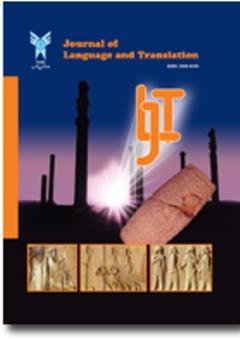The Role of Participatory Structure and Output Modality in Developing Iranian EFL Learners’ Writing and their Perceptions: A Mixed-Method Study
Subject Areas : All areas of language and translation
Mahdieh Pourhadi
1
,
Nasrin Hadidi Tamjid
2
*
,
Saeideh Ahangari
3
![]()
1 - Department of English, Tabriz Branch, Islamic Azad University, Tabriz, Iran
2 - Department of English, Tabriz Branch, Islamic Azad University, Tabriz, Iran
3 - Department of English, Tabriz Branch, Islamic Azad University, Tabriz, Iran
Keywords: Participatory Structure, Output Modality, Writing, Perceptions, EFL Learners&rsquo, , Mixed-Method,
Abstract :
Educational aids and new educational technologies have transformed learning systems during the last decade. The present study was an attempt to investigate the role of participatory structure and output modality in enhancing Iranian EFL learners’ writing, and examine their perceptions toward participating in writing activities. The population of this study included all female EFL learners (90 learners) at intermediate level at Avayeh Daneshvaran Language Academy in Tabriz. Among them, 63 learners were selected as the sample group after conducting a sample of the PET. The participants were selected through convenient sampling; they included four intact classes. The instruments included two samples of the English language proficiency test of PET, which were administered as homogeneity test, and the pre-tests and posttests of writing. The collected data were analyzed using one-way ANOVA and two-way ANCOVA. The researchers analyzed the participants’ responses to the open-ended questionnaire qualitatively. The findings revealed that output modality, participatory structure, and the interaction of these two had no significant effect on EFL learners’ writing skill. Regarding the qualitative section, the findings showed that the learners had positive attitude toward the use of podcasts and summary telling and writing. The findings of the study have significant theoretical and practical significance for teachers, teacher educators, curriculum designers and researchers.

